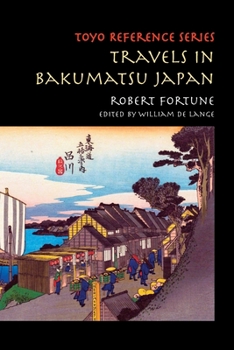Travels in Bakumatsu Japan
Robert Fortune (1812-80), a Scottish botanist from Kelloe, was an avid traveler and plant hunter, who is still known for introducing the West a large number of plant species he collected on his travels through China, Taiwan, and Japan on behalf of the Horticultural Society.
The intrepid Scotsman not only collected plants. Throughout his various travels, he also proved a keen observer, recording everything he encountered in vivid accounts: of the countryside, of the villages, of street-life, of people's dwellings, of the people themselves.
Residing in Yokohama, Kanagawa, and Edo for two lengthy periods between 1860 and 1861, Fortune was also at the right place and time to witness the first disturbances that characterized the bakumatsu period (the closing decade of the Tokugawa bakufu), notably the night attack on the British legation at the T zen temple.
Undaunted, Fortune persevered in his quest. Like the typical Victorian scientist-sideburns and all-he continued to explore Japan's capital and its surroundings, invariably making friends among like-minded locals and winning them over for his plant-collecting project.
Reading Fortune's account, one is still infected by his wonderment at Japan's natural beauty, by his unjudging admiration for its people's ancient habits and customs. We also read his work with a sense of gratitude, for the captiva-ting world he describes would be irretrievably lost within just a few decades.





